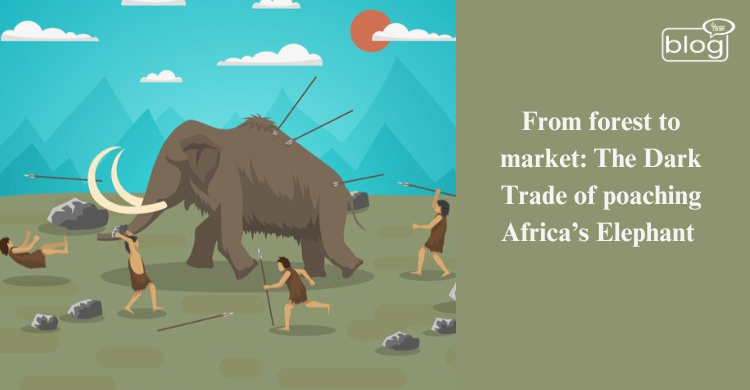Africa is one of the most diversified continents abundant in thick green forest, ample grassy fields, depopulated desert, mountain, river, renewable and nonrenewable energy resources. Africa’s geographical wonders contain a bewildering ecosystem, with over 50,000 plant species and 1,100 mammal species ( including almost 200 primate varieties) , about 2,500 bird species and 1,000 amphibian species and over 2,000 reptile species.
All these unparalleled features fabricate Africa as one of largest variegated continents that always be the first choice of nature adventurous. Africa’s wildlife:
What is poaching?
Poaching is an illegal hunting or capturing of gutsy wild animals from any reserved area with a view to entertainment, tourism and other exploitative purposes. Poaching involves killing animals mercilessly with the intention of acquiring their meat, horns, scales,skin or other body parts. It’s not just only animals, fish and other aquatic or marine animals, rare plants (herbs, endangered plants, carnivorous, spring wildlife,succulent) can be poached, too.
Poaching is a highly organised crime done by international traffickers through shooting animals directly, live capturing, trapping or snaring that often lead to the death of nontarget animals. The survival of numerous animals especially, endangered species, are now threatened because of poaching.
Why are the reasons for targeting elephants for poaching?
Elephants are the largest land mammals on earth having a massive distinct body, large ear and long trunk. They are mostly admired for their peculiar communication skill,intelligence, physical characteristics, and ecological significance. They are considered engineers of the ecosystem but now facing a major threat from poaching driven by a high demand in the international market for their tusks. Ivory is made from elephant tusks which have high demand in the world, particularly in Asia, used for making decorative items like dagger handles,carvings, piano, in ornamentation and traditional medicine. Using animal body parts is often regarded as a symbol of sophistication and high status which gradually encourages the international poacher to take risk of poaching to override strict wildlife act.
Moreover, the expansion of poaching is increasing at an alarming rate due to lack of income sources for those who live near wildlife. In a 2017 and 2019 survey, it was mentioned that trappers admitted to doing such crime to support their families. Human-wildlife conflict can also be another reason which lead human to override legal measure in order to protect their livelihood.
A data of Elephants poaching since previous years according to IFAW
Within the last 100 years, 90% of African elephants have been killed with a view to poaching. Around 40% of elephants are being killed due to poaching according to Monitoring the illegal killing of Elephants (MIKE), an elephant conservation programme, in 2021. On the continent of Africa, around 55 elephants are poached every single day.
African forest elephants are facing an immense threat of poaching as they are found in the dense rainforest of central African Republic, Equatorial Guinea, Côte d’Ivoire Ghana. The monitoring system is not upto the mark to override poaching. African savannah elephants are now also in the danger zone of poaching.
How does Elephant poaching impact ecological balance?
The impact of elephant poaching is unfathomable as elephants played a crucial role in the ecosystem. Usually, poachers target smaller tusks elephants or no task. Elephants are the most emergent mammal species to keep a harmonious ecological balance.
Many previous reports state that African savannah elephants have been poached not only for their ivory tusks but also for their meat. Over the last 50 years, the population of African savannah elephants has decreased by at least 60%. If the poaching rate of African elephants is increased day by day like that, in future Africa’s wildlife will gradually move ahead towards endangerment.
To read more blogs, click Here
Writer
Preema Shil
Intern, Content writing Department
YSSE

